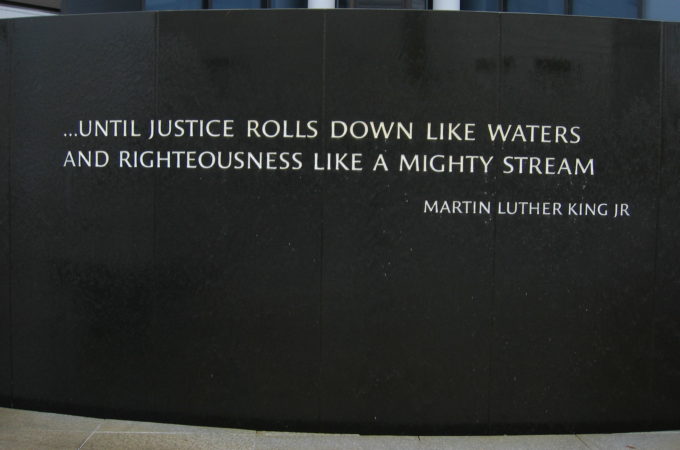At one time, in the West, virtue (moral goodness) was valued for its own sake. Sadly, that clarity has faded. Now, we practice, not virtue so much as “virtue signalling”: the conspicuous display of a politically correct position so as to reassure your in-crowd of your bona fides. It’s more important to be seen as virtuous than to actually be virtuous. (Which evokes a question about the virtue of humility!)
Actually, while the term “virtue signalling” is new, the concept is not.
 Beware of practicing your righteousness before other people in order to be seen by them, for then you will have no reward from your Father who is in heaven. … when you pray, you must not be like the hypocrites. For they love to stand and pray in the synagogues and at the street corners, that they may be seen by others. Truly, I say to you, they have received their reward. (Mat 6:1,5 ESV)
Beware of practicing your righteousness before other people in order to be seen by them, for then you will have no reward from your Father who is in heaven. … when you pray, you must not be like the hypocrites. For they love to stand and pray in the synagogues and at the street corners, that they may be seen by others. Truly, I say to you, they have received their reward. (Mat 6:1,5 ESV)
As we have pointed out earlier in this series, a society in which biblical principles are acknowledged and followed is characterized by the virtuous life of its citizens. What’s more, it’s a thriving society. God wired the creation so that the practice of virtue leads to flourishing.
Virtue is a key to thriving
Those who want to thrive would do well to learn to practice virtues. Solomon’s purpose statement at the beginning of Proverbs indicates his emphasis on virtue.
The proverbs of Solomon, son of David, king of Israel: To know wisdom and instruction, to understand words of insight, to receive instruction in wise dealing, in righteousness, justice, and equity; (Pro 1:1-3 ESV)
In this post, we come to the virtue of righteousness.
The writers of Proverbs used a Hebrew term for righteousness[1] which means “righteous, upright, just, i.e. pertaining to being a person in accordance with a proper standard; innocent, guiltless, i.e. pertaining to not having sin or wrongdoing according to a just standard.”
Webster’s 1828 gives us this English definition: “Purity of heart and rectitude of life; conformity of heart and life to the divine law. Righteousness … is nearly equivalent to holiness, comprehending holy principles and affections of heart, and conformity of life to the divine law. It includes all we call justice, honesty and virtue, with holy affections; in short, it is true religion.”
In some circles, “righteous” has a negative connotation. If you have the courage to object to some unethical or immoral behavior you might hear the retort, “Don’t be so righteous!”[2] Those who cling to their vices are loathe to hear reminders that the universe has moral standards with a perfect divine Judge.
Righteousness, in Proverbs, is actually a virtue
Proverbs knows nothing of this view of righteousness; the writer calls us to practice true righteousness, behavior patterned after God Himself. We are exhorted to this virtue again and again. In fact, its presence or absence in one’s life is an important marker of one’s likely success or failure.
Our grasp of the meaning of righteousness is enhanced by considering the opposite: wickedness. The Hebrew word[3] here is “wicked, unrighteous, i.e. pertaining to being evil, with a focus on the guilt of violating a standard; guilty, i.e. pertaining to being legally not innocent of a violation of law.” The English, per Webster’s 1828 dictionary, is “departure from the rules of the divine law; evil disposition or practices; immorality; crime; sin; sinfulness; corrupt manners. Wickedness generally signifies evil practices … . But wickedness expresses also the corrupt dispositions of the heart.”
Of course that’s the condition of every unregenerate heart. We do well to seek to live in virtue, to practice righteousness. And ultimately, of course, to bow to the One perfectly righteous God-man whose perfect righteousness is freely imputed to all who collapse on His mercy. About him, the apostle Paul wrote,
And because of [God] you are in Christ Jesus, who became to us wisdom from God, righteousness and sanctification and redemption, (1 Cor 1:30 ESV).
- Darrow Miller and Gary Brumbelow
[1] צַדִּיק (ṣǎd∙dîq)
[2] The companion word, “pious” has suffered a similar effect. One almost never hears it used in the original sense found in Webster’s 1828: “Godly; reverencing and honoring the Supreme Being in heart and in the practice of the duties he has enjoined; having due veneration and affection for the character of God, and habitually obeying his commands; religious; devoted to the service of God; applied to persons.” Today, to be pious is to walk around with your nose in the air.
[3] רָשָׁע (rā∙šāʿ)






